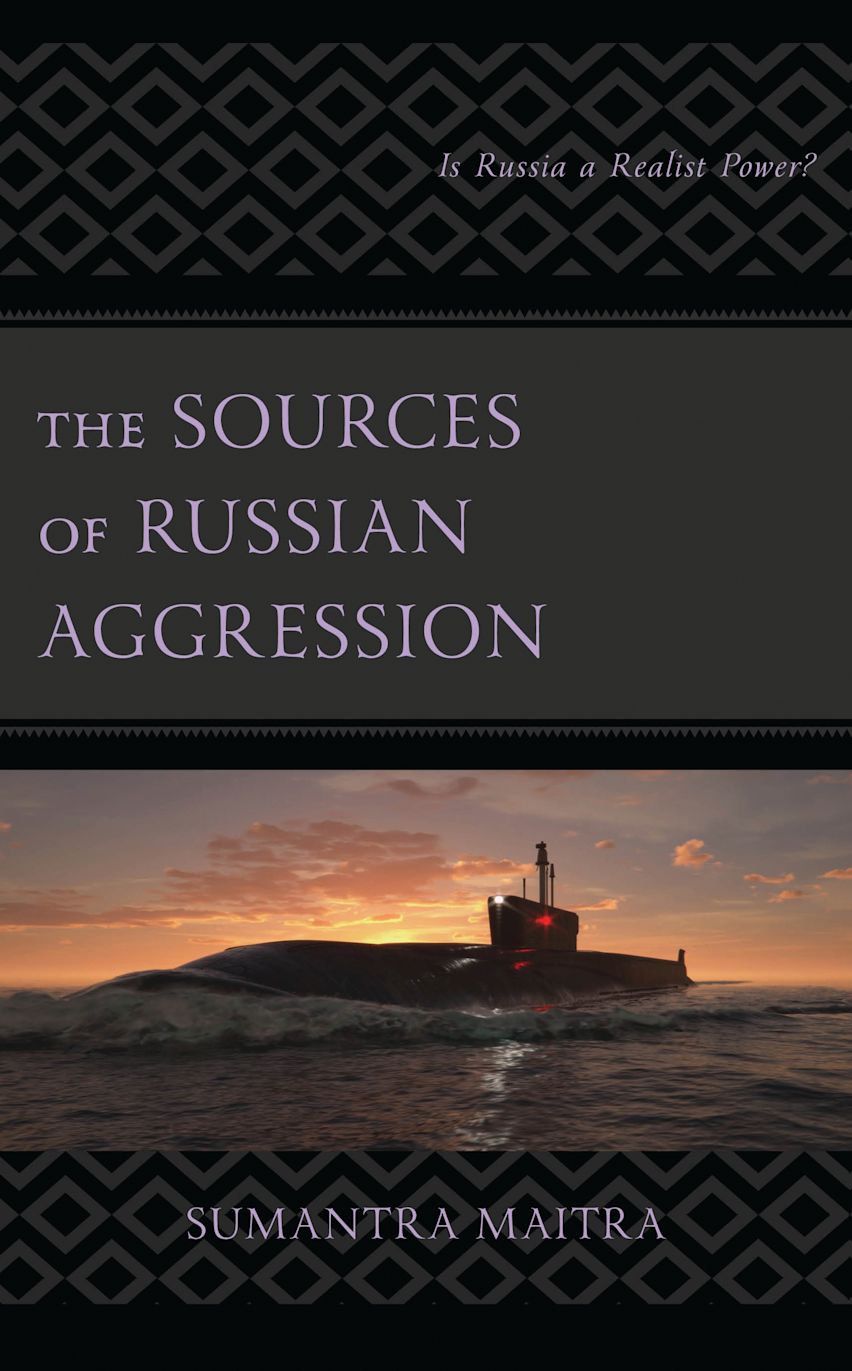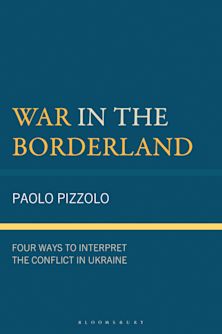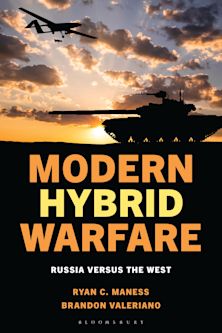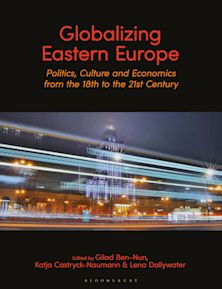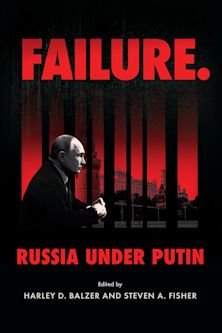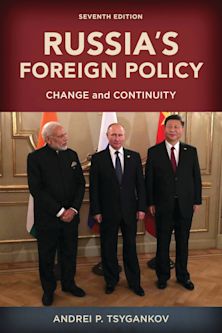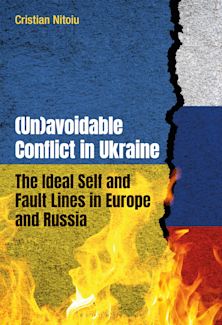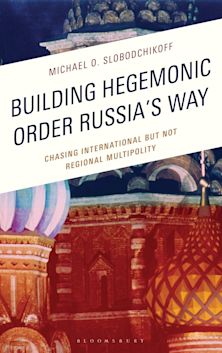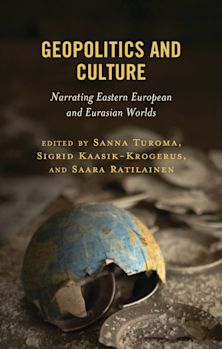- Home
- ACADEMIC
- Politics & International Relations
- Russian, Soviet and Post Soviet Politics
- The Sources of Russian Aggression
The Sources of Russian Aggression
Is Russia a Realist Power?
The Sources of Russian Aggression
Is Russia a Realist Power?
You must sign in to add this item to your wishlist. Please sign in or create an account
Description
Moscow indulges in the military use of force and balancing behaviour, only when it perceives its interests to be threatened, but seeks to preserve, uphold, or return to the status-quo the moment the threats subside or are neutralized by balancing actions, acting more as a security maximizer, than a power maximizer. The Sources of Russian Aggression: Is Russia a Realist Power? employs a qualitative research design and case study method, relying on secondary literature, military sources, and observed and recorded news. This evidence relies on Russian strategic actions, and not Russian rhetoric. The evidence explored suggests that Russia balances against perceived threats and that Russian use of force is directly proportional to any strategic and material loss. Alternatively, Russia behaves like a status quo power when the perceived threat subsides. Also, Maitra explains how Russian military aggression is focused on geopolitical balance and has narrow strategic aims, and Russia either lacks the will and/or capability or both to be an expansionist or occupying power. Maitra concludes that Russia is inherently a reactive power with limited regional aims, which are not commensurate with an aspiration of a continental hegemony. The findings have future policy relevance for European/British and American security, as the U.S. grows increasingly isolationist, and NATO and EU rift widens.
Table of Contents
Acknowledgments
Introduction
Chapter 1: Post Soviet Russian Foreign Policy
Chapter 2: Russian Balancing Against NATO
Chapter 3: Russian Balancing in Ukraine
Chapter 4: Russian Balancing in Georgia
Conclusion: The Sources of Russian Aggression
Bibliography
Index
About the Author
Product details
| Published | 30 Apr 2024 |
|---|---|
| Format | Ebook (PDF) |
| Edition | 1st |
| Extent | 234 |
| ISBN | 9798216337669 |
| Imprint | Lexington Books |
| Publisher | Bloomsbury Publishing |
About the contributors
Reviews
-
This is a truly excellent study of Russian foreign policy since the Cold War. It makes it manifestly clear that Putin consistently acted according to realist logic and that he does not have an imperial agenda. Hopefully, The Sources of Russian Aggression: Is Russia a Realist Power? will be widely read in the West, where misconceptions about Putin’s thinking abound.
John J. Mearsheimer, University of Chicago
-
Sumantra Maitra's work looks carefully, and from a realist perspective, at actual Russian behavior, its implications, and the conclusions we can draw from it, and all without the strong ideological spectacles that so many bring to the issues. He rightly concludes that Russian actions are rational, do not need some kind of Russian Sonderweg or civilizational exceptionalism to account for them, and can in large part be explained by its perceptions, justified or otherwise, of threats to its self-defined interests. At a moment when so many observers argue for the inevitability of an open-ended and possibly existential confrontation with Russia, it is timely to consider that a more clear-sighted realist approach could be more productive for Western policy-makers.
David George Hamilton Frost, Baron Frost, The Rt Hon. Lord Frost of Allenton, CMG PC
-
Sumantra Maitra's book attempts to address a simple but timely question: when does Moscow choose war, and when, in a similar situation, does Moscow refuse to pull the trigger. This question is of paramount importance, as on that hinges war and peace in Europe and American overstretch in that theater. Studying Russian reactions in three different historical case studies in light of four different variables, Maitra argues that Moscow is a status-quo power and only resorts to aggression when her perceived core strategic and geographic interests are threatened but otherwise lacks the will and capability to be a continental hegemonic threat, even when Russia is and will remain a localized irritant. The central argument is important, different from the hyperbolic literature of our times, and provides some actual confidence building measures to the Euro-Atlantic strategic community. One hopes that this book not only in the Pentagon and the State Department but will also be read in the halls of the Congress and might influence the Congress to return to a classical, detached, and prudential Washingtonian grand-strategy towards Europe.
Russell Vought, president, Center for Renewing America, and former OMB Director, WH
-
From where most of us sit, Russia looks to be an aggressive expansionist power. But Sumantra Maitra’s new book turns the tables on this view. Amassing a battery of sources on Russia’s reactions to NATO’s eastward expansion and the US and EU-backed “color revolutions” in Ukraine and Georgia, Maitra presents a disturbingly strong case for seeing Russia as having been pushed into anti-Western belligerence by a reckless liberal internationalism that just didn’t know when to stop.
Yoram Hazony, chairman, The Edmund Burke Foundation
-
Sumantra Maitra’s recently published book ‘The Sources of Russian Aggression: Is Russia a Realist Power?’ seeks to make sense of the motivations for this increasing turn to interventionism by Russia towards its neighbors. Preferring to focus on Stephen Walt’s Balance of Threat theory, Maitra shows how Moscow came over time to the conclusions that currently fuel its policies today and how that decision making process was a logical outcome to the radical uncertainty of international politics, regardless of how one feels about the wisdom of specific Russian actions.
Responsible Statecraft
-
Maitra’s book shows that Russia’s actions on the world stage, much like some of America’s own, have motives extending from rational calculations of interest. Analysts of Russia need not conjure up the specter of World War II but rather that of nineteenth-century Europe. Then, the central concern was balancing the strategic interests of the great powers in Europe. To any reader who wants to get a deeper understanding of Russian aggression, its causes, and its consequences, this is the place to start.
The National Interest

ONLINE RESOURCES
Bloomsbury Collections
This book is available on Bloomsbury Collections where your library has access.











